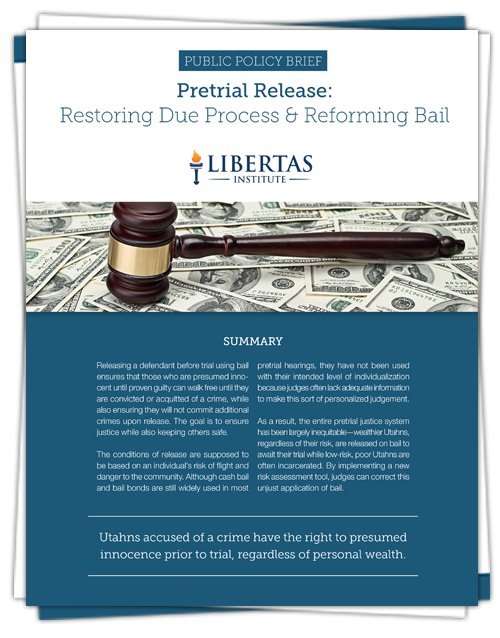Authored by Molly Davis, Criminal Justice Policy Analyst
 Releasing a defendant before trial using bail ensures that those who are presumed innocent until proven guilty can walk free until they are convicted or acquitted of a crime, while also ensuring they will not commit additional crimes upon release. The goal is to ensure justice while also keeping others safe.
Releasing a defendant before trial using bail ensures that those who are presumed innocent until proven guilty can walk free until they are convicted or acquitted of a crime, while also ensuring they will not commit additional crimes upon release. The goal is to ensure justice while also keeping others safe.
The conditions of release are supposed to be based on an individual’s risk of flight and danger to the community. Although cash bail and bail bonds are still widely used in most pretrial hearings, they have not been used with their intended level of individualization because judges often lack adequate information to make this sort of personalized judgement.
As a result, the entire pretrial justice system has been largely inequitable—wealthier Utahns, regardless of their risk, are released on bail to await their trial while low-risk, poor Utahns are often incarcerated. By implementing a new risk assessment tool, judges can correct this unjust application of bail.





